As “research it yourself” becomes a rallying cry for promoters of outlandish conspiracy theories with real-world consequences, educators need to think hard about what’s missing from their information literacy efforts.
Get Started for FREE
Sign up with Facebook Sign up with X
I don't have a Facebook or a X account

 Your new post is loading... Your new post is loading...
 Your new post is loading... Your new post is loading...
Current selected tag: 'librarians' role'. Clear
“If you build it, they will come”
I only just picked up on a useful series of webinars involving the copyright literacy people (Chris Morrison and Jane Secker) and hosted by the Association of Learning Technology. The theme is Copyright and online learning during the COVID-19 pandemic, and they cover a lot of useful information about resources, actions and reactions of key bodies such as the Copyright Licensing Agency, publishers allowing more access etc.
Elizabeth E Charles's insight:
A great series of webinars with information professionals discussing and interpreting the new normal re free access to digital content and relaxation of copyright.
One of the most sought after skills in innovation industries is curiosity. The brilliant thing about curiosity is anybody is capable of it. It does not require intelligent genes or an expensive education. The only requirement is a willingness to try something new. Trying new things is how we advance our disciplines, so curiosity is key to any innovative field. Not surprisingly, curiosity often manifests in experimentation because experimentation, at its core, is about trying new things.
Virginia Wesleyan University (VWU) is ranked 19th in ethnic diversity among national liberal arts colleges by U.S. News & World Report, a distinction held high by the institution. Diversity is a prominent feature of VWU’s strategic plan, and the institution’s core values emphasize inclusion and social responsibility. Given the diverse constituents on campus, librarians at VWU’s Hofheimer Library saw an opportunity to develop library diversity initiatives in an intentional way. What’s more, diversity forms an important component of the library’s strategic plan, thus emphasizing a commitment inclusive of the community being served.
Several Twin Cities library systems are considering an “open libraries” model that would give patrons access to books, computers and other resources by themselves at times when the library isn’t open and staffed. Two west metro libraries already use the idea on a small scale.
The setup relies on technology — via a central management system — to let people enter the library, check out items and log onto computers — all while video monitors record their actions. There’s a phone connected to a central library or an on-call librarian so patrons can ask questions. Automated systems announce when the library is closing, flick the lights off and on and can even operate amenities like a gas fireplace on a schedule.
On October 17th, 1989, the Oakland A’s were playing the San Francisco Giants in the World Series, but just as the game was kicking off—the television broadcast cut out. When the signal came back, it was no longer the baseball game. These were the early minutes of the Loma Prieta earthquake, which struck near Santa
In an environment of rapid change in higher education in which institutions strive to lure prospective students with unique curricula, there is a growing need to provide innovative pedagogical experiences for students through collaborations among archives, libraries, and digital humanities. Three colleagues at a small Liberal Arts university—a digital librarian, a historian-archivist, and a historian-digital humanist—planned an integrated set of assignments and projects in an “Introduction to Digital Humanities” course that introduced students to archival management and digitization of archival material. This article demonstrates how we developed this signature course and curriculum on a limited budget in the context of a liberal arts university, and illuminate how it capitalized on relationships forged among the archives, the library, the history department and the digital humanities program. We first describe our collaborative workflow, and how we involve undergraduate student-workers in these efforts. Next, we provide a detailed lesson plan for an Introduction to Digital Humanities course that integrates traditional archival materials, in this case photographs and blueprints of campus structures, into a digital archive. Finally, we share how our students converted these photographs and blueprints into digital 3D models via Sketchup, a powerful architectural modeling software.
May 2019 marks five years since I completed the practicum to earn a Master of Science degree in Library Media Education (LME) from Western Kentucky University. The LME Practicum requires 120 field hours—with 40 of these hours being completed in a school library media/educational technology center under the supervision of an experienced library media/educational technology specialist.
The goal of the LME Practicum is for graduate students to be able to apply library media education skills in instruction, technology, collaboration, and administration under the supervision of a certified school librarian. Performance is assessed using the supervising media specialist evaluation, video conferencing, student time log, practicum evidence presentation, and a practicum reflection. Not much has changed regarding the practicum and its requirements since my experience five years ago. What has changed is the fact that I am no longer the one completing the practicum. Now, I am the supervising librarian.
This article was originally published by Canadian School Libraries, a registered non-profit charitable organization dedicated to professional research and development in the field of the school library learning commons in Canada. It is republished here with permission. Teacher-librarians have the skills and knowledge to help classroom teachers deepen inquiry-based learning projects. You just have to ask.
Adapting to change requires reacting positively to change – even creating change – and ultimately ensuring that it works to a special library’s advantage. Equally important, special librarians themselves can thrive, both personally and professionally, when they become change agents …. think “resilience,” not resistance.
How often have you walked passed your school library and never given a second thought to the person who works in that room? Or you notice that there are students in there reading books and working on the computers and think ‘that’s nice’. You may even encourage your students to go and choose a book occasionally and think that you are doing your bit.
What if someone suddenly said that your school library was closing and the room was going to become a gym. Would you really be upset by the loss of such a resources or would you secretly not be all that bothered? Do you ever think about the person who is working in there who is desperate to help you and your students? Do you ever wonder why that person is constantly trying to stop you in the corridor when you are busy? Do you understand the opportunities you are missing? |
Libraries and librarians play a critical role in every aspect of teaching and learning—discover what it means to be Future Ready Via EDTECH@UTRGV
From
bookriot
Katisha Smith writes: "Here are 12 pioneering Black American librarians you’ve probably never heard of, but should definitely know. However, this is not an exhaustive list and represents only a fraction of the black librarians who have made significant contributions to librarianship. Hopefully, learning more about these library pioneers will inspire further exploration of other trailblazing Black American librarians." Via Mary Reilley Clark 
Mary Reilley Clark's curator insight,
May 8, 2020 11:08 AM
This was a great introduction to several librarians I'd never heard of. Digging deeper on the web, I found that Sadie Peterson Delaney not only used bibliotherapy to help wounded soldiers and veterans in the military hospital in Tuskegee, she possibly invented ebooks! For soldiers too weak to hold a book, she had the book projected onto a wall, and the soldier could push a button to turn a page. So stuff it, Kindle, you aren't so innovative!
One of the Enabling Competencies identified by the Special Libraries Association is lifelong learning. In busy jobs, taking time to stop and learn something new is not always the easiest thing to do. As I’ve worked to balance professional development with immediate needs, I started to incorporate the practice of being a reflective practitioner.
9.30 - 10.00 Registration 10.00 Welcome and housekeeping 10.15 - 11.00 Group Discussion. 11:00-11:40 Presentation 11.00 - 11.40 Decolonising LSE Collections - Kevin Wilson (London School of Economics) 11.40 - 11.50 Tea break 11:50 - 13:10 Presentations 11.50 - 12.30 Broaden my Bookshelf: working with the University of Huddersfield SU to tackle the attainment gap -…
Elizabeth E Charles's insight:
Presentations at this conference have been uploaded to this site. Event held on 24 January 2020 at Goldsmiths University.
The ACRL Board of Directors recently articulated a new core commitment of our strategic plan, the Plan for Excellence. Along with the association’s core purpose, “[t]o lead academic and research librarians and libraries in advancing learning and scholarship,” and our core organizational values, which include visionary leadership, responsible stewardship of resources, and the values of higher education and intellectual freedom, we have made an explicit commitment to equity, diversity, and inclusion (EDI).
Building on recent work in the sector in the area of skills for those working in scholarly communication and open access roles, we ran a workshop in York in February “Developing a skilled workforce: the skills needed to support scholarly communication and open access”. Intended to be interactive and practical – the workshop provided an opportunity to shareissues, concerns and practices, to give feedback on existing activities and to shape future activity.
Librarians in educational settings try to provide not only physical access but also intellectual access to recorded information. Because digital resources constitute a significant portion of this information, librarians need to pay explicit attention to the effective retrieval and use of these assets. More specifically, users should have the ability to understand both the information itself and the medium through which it is conveyed. These competencies are known collectively as information and communication technology (ICT) literacy.
Conference on Learning Information Literacy across the Globe 
Esther Fernández Ramos's curator insight,
May 26, 2019 3:34 PM
Una misión que comparten bibliotecarios e investigadores es contribuir a mejorar la sociedad. El acceso abierto es una herramienta que puede ser muy útil, pero como todas las herramientas necesita ser conocida y utilizada para desarrollar su potencial.
Hemos de trabajar para que el contenido en abierto ayude a formar ciudadanos más informados y capaces de tomar decisiones con la mejor base posible.
Pam McKinney here live blogging the final keynote from the LILAC conference featuring Professor Alison Littlejohn, Dean of learning and teaching in the faculty of social sciences at the University of Glasgow. Allison began by outlining the neo-liberalisation of the higher education sector, positioning students as consumers and the rise in importance of the national student survey. Allison was involved with a project called “learning literacies in the digital age” which outlined the need for learning to focus on processes and literacies, not content. Allison discussed the power of MOOCs to disrupt education, and to give people the opportunity to learn in a different way, using digital technologies.
(After 7 years of kind of non-stop research and writing I decided that it would be a useful exercise to prepare a narrative of my research journey to draw together the threads of my various projects. I share it here not only for its insights into how research interests can inform and build upon one another, but in the hope of illustrating for other librarians considering developing their own research agendas the unexpected and serendipitous but exciting ways in which they can progress and evolve, as well as the opportunities they can afford! — MD).
Skills for special librarians include focused writing in the age of technology and an ever-expanding information universe. With technology and devices competing for our attention, we must be disciplined as we focus on each task and activity, setting aside uninterrupted time to write.
Here are some ways to focus on writing. Whether it’s a writing project you’ve been putting off or perhaps a memo you need to write that recommends new software for your information center, be disciplined and schedule writing time without all that distracting technology and social media.
The changing landscape of scholarly communication has caused something of a chain reaction in academic libraries with increasing numbers setting up dedicated research support departments to offer advice and training to their users. Librarians are excited to see new job opportunities emerging in these departments which on paper seem like an excellent fit for their skills. But in reality are librarians the ones actually taking the roles in these departments or are they being beaten at their own game? Research, 'Where did they come from? The educational background of people working in scholarly communication', suggests that many of those appointed to these new roles within scholarly communication departments come to the library having completed a PhD and that for many their only experience of the library comes as a user rather than a staff member. |



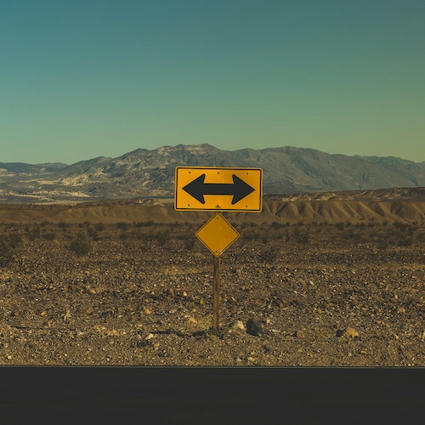

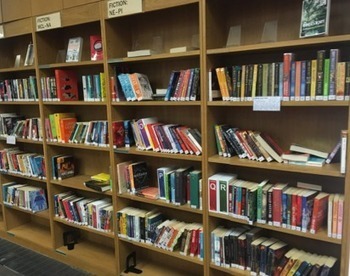



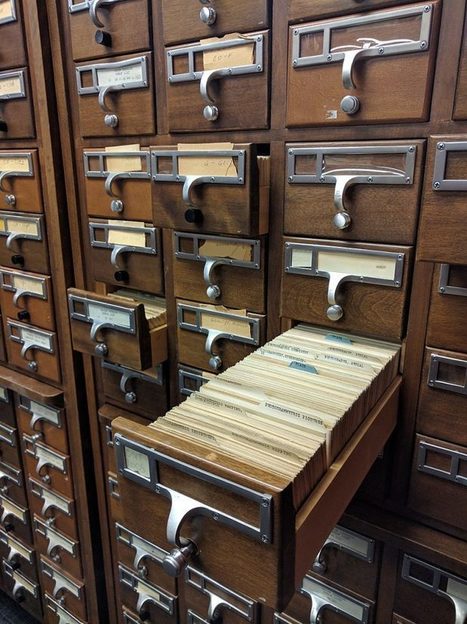
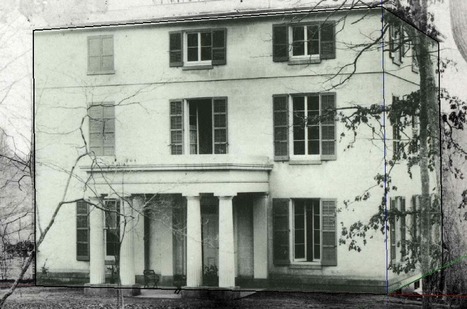
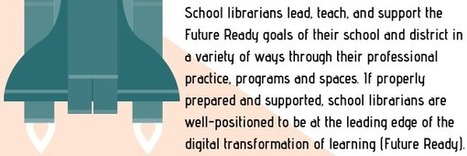
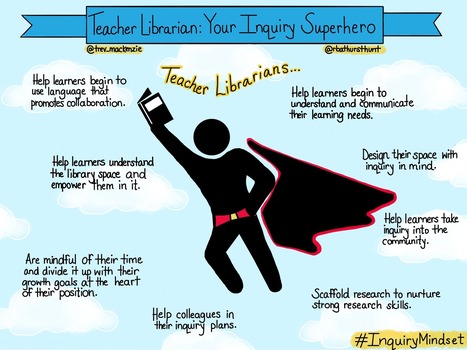

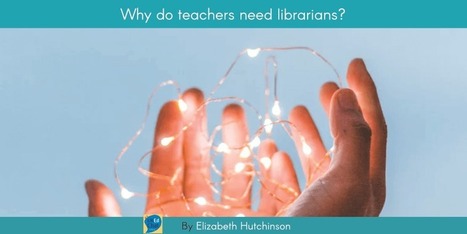


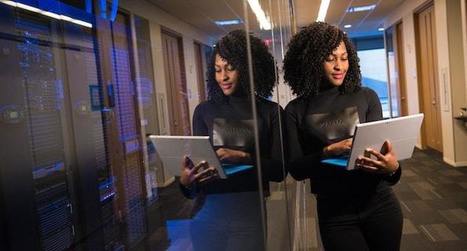


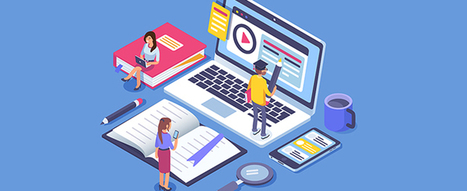
![[Un]intended consequences of educational change: The need to focus on literacy development #lilac19 | Information Literacy Weblog | Information and digital literacy in education via the digital path | Scoop.it](https://img.scoop.it/yhH9CewzjcqLVSO178Xq_zl72eJkfbmt4t8yenImKBVvK0kTmF0xjctABnaLJIm9)
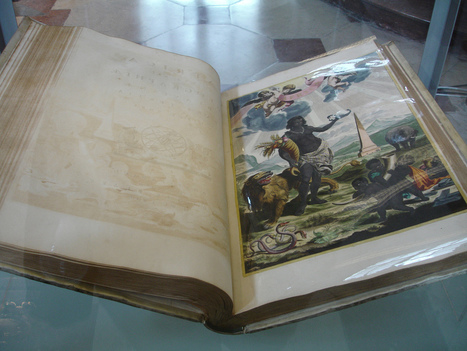

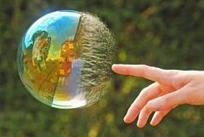





Provocative and timely piece by Barbara Fister, on what skills are needed in teaching information literacy in an age of 'conspiracy theories' and the blurring of the line of what is fact and what is opinion.